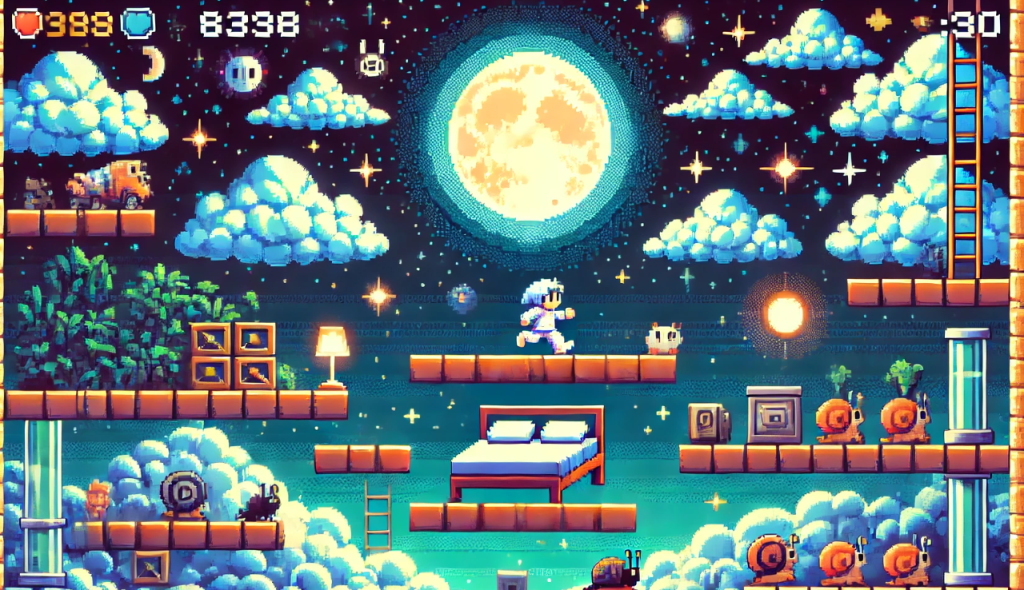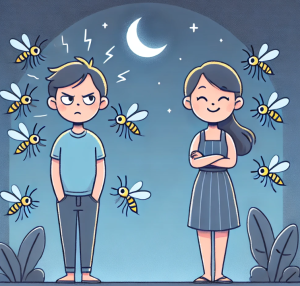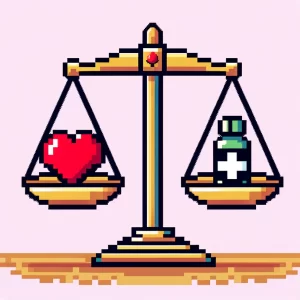
Can Sleep Be a Game?
Ever felt like you just can’t get enough sleep, no matter how hard you try? You’re not alone. With the hustle and bustle of modern life, sleep problems are all too common. But what if the solution was as simple as playing a game? Recent research suggests that game-based learning might be the key to improving sleep hygiene and overall sleep quality. Let’s dive into this fascinating study and see how it all works.
Why Sleep Matters
Before we get into the nitty-gritty of the study, let’s talk about why sleep is so important. Quality sleep is crucial for maintaining good health and well-being. Poor sleep has been linked to various health issues like heart disease, hypertension, and increased anxiety. Additionally, poor sleep can reduce productivity and efficiency at work.
Two main indicators of good sleep quality are falling asleep within 15 minutes and staying asleep throughout the night. Unfortunately, many people struggle with these aspects. Factors like stress, lifestyle, and even socioeconomic status can affect sleep quality.
The Traditional Approach: Sleep Hygiene Education
Sleep hygiene education (SHE) involves learning behaviors that promote good sleep, such as reducing caffeine intake, establishing a regular sleep schedule, and creating a restful sleep environment. Typically, SHE is delivered through verbal instructions or handouts by healthcare providers. However, many practitioners find SHE alone to be ineffective.
A New Hope: Game-Based Learning
This study explored whether using a more engaging method, like game-based learning, could improve the effectiveness of SHE. Researchers at the University of Central Florida developed a mobile app called “Restful Journey” to teach and reinforce good sleep habits through a series of mini-games.
The Study: Methods and Participants
Thirty-five participants with sleep problems played the SHE games for 30 days. They spent about 10-15 minutes per day on the app. The study measured changes in sleep quality and state anxiety before and after using the app.
The Results: Significant Improvements
Participants showed significant improvements in both sleep quality and state anxiety after using the app for 30 days. Although the majority still experienced elevated scores, the improvements were notable. Specifically, there were significant changes in global sleep quality, subjective sleep quality, sleep latency, sleep duration, sleep efficiency, and sleep disturbance.
Breaking Down the Games
The “Restful Journey” app features several mini-games designed to teach and reinforce sleep hygiene practices:
- Healthy Habits: A quiz-based game where players learn sleep hygiene principles and get feedback on their answers.
- Sleep Scrutiny: Players inspect virtual bedrooms to identify objects that help or hinder sleep.
- Vigilant Voyage: This game translates learning into real-life applications. Players log their sleep habits and earn rewards for meeting sleep goals.
These games make learning about sleep hygiene fun and engaging, providing constant feedback and motivation to practice good sleep behaviors.
Why This Matters
This study’s findings suggest that game-based learning could be a valuable tool in improving sleep hygiene and reducing anxiety. Traditional SHE methods often fall short because they lack engagement and follow-up. By incorporating interactive games, individuals are more likely to retain and practice the behaviors they learn.
The Broader Impact
Sleep problems affect a large portion of the population, and many people turn to their primary care providers for help. However, pharmacological treatments are often the first line of defense, while SHE is underutilized and perceived as ineffective. This study highlights the potential of game-based learning as an accessible, cost-effective, and engaging alternative to traditional methods.
Looking Forward
While the study shows promising results, it’s important to note its limitations. The lack of a control group and the short duration of the study are significant factors to consider. Future research should compare game-based SHE to traditional methods and examine long-term effects.
Additionally, tailoring SHE to individual needs through machine learning could further enhance its effectiveness. As this study shows, nearly a quarter of participants no longer met the criteria for poor sleep after using the app. This indicates that a personalized approach might benefit a significant portion of the population.
Join the Conversation
Now, we want to hear from you:
- Have you ever tried any sleep hygiene practices? What worked for you, and what didn’t?
- How do you feel about using games to improve sleep? Do you think it’s a method you would try?
Share your experiences and thoughts in the comments or on social media using the hashtag #SleepGames. Let’s start a conversation about innovative ways to improve our sleep!
Join the Community – Get Your Weekly Public Health Update!
Be a health leader! Subscribe for free and share this blog to shape the future of public health together.



